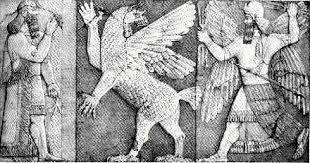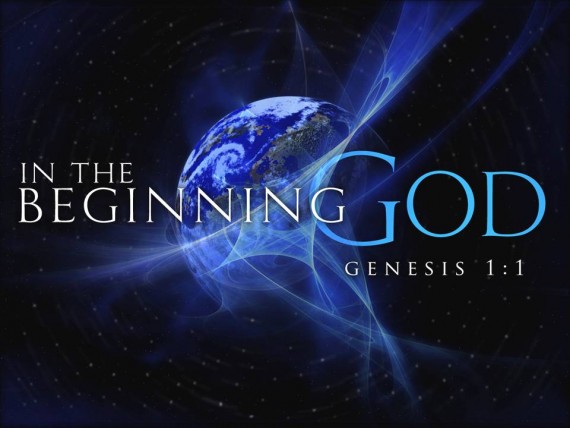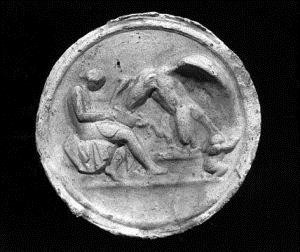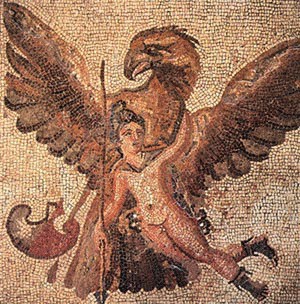 Genesis 1:3 is packed full of truth and insight into something very important. This text provides a clear contrast for us.
Genesis 1:3 is packed full of truth and insight into something very important. This text provides a clear contrast for us.
It contrasts how religion tells us to deal with evil in the world, and how God deals with evil in the world. God’s way leads to light and redemption, but the religious way leads only to more darkness and evil.
So if you want to know what you can do about the evil in the world today, make sure you listen to today’s show on Genesis 1:3.
The text of Genesis 1:3
Genesis 1:3. Then God said, “Let there be light”; and there was light.

In this discussion of Genesis 1:3 we look at:
- How can there be light before God created the sun, moon, and stars? The answer is that this is the wrong question.
- The light that God spoke into existence in Genesis 1:3 is in response to the darkness that existed in Genesis 1:2.
- Moses is continuing to make distinctions here between Yahweh and the gods of other Ancient Near East religions.
- Learn how we can fight against darkness in the world today.
Resources:
- Logos Bible Software
- Tyndale Bible Dictionary
- Summary of Some Creation Myths
- Subscribe and Leave a Review on iTunes
Downloadable Podcast Resources
Those who are part of my online discipleship group may download the MP3 audio file for this podcast and view the podcast transcript below.
You must join a discipleship group or login to download the MP3 and view the transcript.
Thanks for visiting this page ... but this page is for Discipleship Group members.
If you are already part of a Faith, Hope, or Love Discipleship Group,
Login here.
If you are part of the free "Grace" Discipleship group, you will need to
Upgrade your Membership to one of the paid groups.
If you are not part of any group, you may learn about the various groups and their benefits here:
Join Us Today.

Do you like learning about the Bible online?
Do you like learning about Scripture and theology through my podcast? If so, then you will also love my online courses. They all have MP3 audio downloads, PDF transcripts, quizzes, and a comment section for questions and interaction with other students.
If you want to deepen your relationship with God and better understand Scripture, take one (or all) of these courses. They are great for personal study or for a small group Bible study.
You can see the list of available courses here, and if you join the Discipleship group, you can take all the courses at no additional cost. Go here to learn more and join now.


![[#03] Genesis 1:3 – Let there be Light](https://redeeminggod.com/wp-content/uploads/2015/09/One-Verse-at-a-Time-150x150.jpg)





 Welcome to the One Verse podcast, where we liberate Scripture from religion, one verse at a time.
Welcome to the One Verse podcast, where we liberate Scripture from religion, one verse at a time.
 But even if the text is referring to a gay couple in bed, and even if the text does teach about the rapture, I pointed out to him that one of the men was taken in the rapture, which means that apparently, God accepted him.
But even if the text is referring to a gay couple in bed, and even if the text does teach about the rapture, I pointed out to him that one of the men was taken in the rapture, which means that apparently, God accepted him. Immediately before the mention of two men in one bed is a lengthy discussion of the destruction of Sodom. Now I don’t believe the sin of Sodom was homosexuality. But there are many today who believe that it was, and I think most of the Jewish believers in Luke’s audience may have believed it as well.
Immediately before the mention of two men in one bed is a lengthy discussion of the destruction of Sodom. Now I don’t believe the sin of Sodom was homosexuality. But there are many today who believe that it was, and I think most of the Jewish believers in Luke’s audience may have believed it as well. Plutarch (ca A.D. 45 to 120) was born in Greece near Delphi, and was a contemporary of Luke. One of Plutarch’s s, “The Banquet of Seven Wise Men,” is a fictional conversation among some famous men who lived around 650 BCE. After a brief lull in the conversation, Thales of Miletus speaks:
Plutarch (ca A.D. 45 to 120) was born in Greece near Delphi, and was a contemporary of Luke. One of Plutarch’s s, “The Banquet of Seven Wise Men,” is a fictional conversation among some famous men who lived around 650 BCE. After a brief lull in the conversation, Thales of Miletus speaks: A major piece of evidence supporting the thesis of a deliberate gay theme in Luke’s Small Apocalypse (which I call “Luke’s Gay Apocalypse”) is found in the two primary symbols of Zeus, the supreme god in Roman religion. The symbols of Zeus are the lightning bolt and the eagle, and they appear in Luke 17:24, 37.
A major piece of evidence supporting the thesis of a deliberate gay theme in Luke’s Small Apocalypse (which I call “Luke’s Gay Apocalypse”) is found in the two primary symbols of Zeus, the supreme god in Roman religion. The symbols of Zeus are the lightning bolt and the eagle, and they appear in Luke 17:24, 37. According to the story, the attractive young Ganymede is abducted by an eagle, who in one version is Zeus himself, having transformed himself into an eagle. While the story had several uses (as a paradigm for imperialism and an allegory for Truth), in the Roman era the sexual nature of Ganymede’s relationship with Zeus was widely recognized.
According to the story, the attractive young Ganymede is abducted by an eagle, who in one version is Zeus himself, having transformed himself into an eagle. While the story had several uses (as a paradigm for imperialism and an allegory for Truth), in the Roman era the sexual nature of Ganymede’s relationship with Zeus was widely recognized. What we have here are the two chief symbols of Zeus, lightning and eagles, one of which is vividly associated with Zeus’ same-sex relationship with Ganymede, located at the beginning and end of a discrete unit of the third gospel, Luke’s Small Apocalypse. That distance between the verses may seem great, and this distance has obscured their historical and cultural connection. But these were the symbols of Zeus. If we were to read a paragraph that opened with a mention of a “crown of thorns” and ended with a “cross,” no one would doubt that the crucifixion was a central element in that paragraph.
What we have here are the two chief symbols of Zeus, lightning and eagles, one of which is vividly associated with Zeus’ same-sex relationship with Ganymede, located at the beginning and end of a discrete unit of the third gospel, Luke’s Small Apocalypse. That distance between the verses may seem great, and this distance has obscured their historical and cultural connection. But these were the symbols of Zeus. If we were to read a paragraph that opened with a mention of a “crown of thorns” and ended with a “cross,” no one would doubt that the crucifixion was a central element in that paragraph.